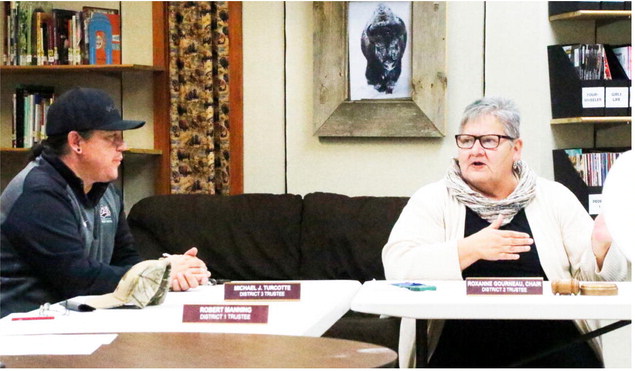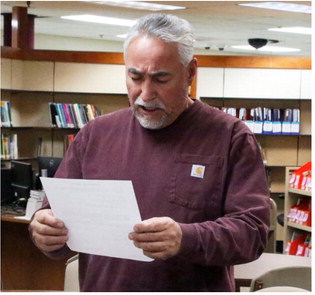Montana’s Tight Senate Race Draws National Attention, Money


On a sunny September afternoon in Butte, Democratic Sen. Jon Tester stood in a small room in a brick building and rallied a group of volunteers by casting his opponent, Republican businessman and former Navy SEAL Tim Sheehy, as a wealthy transplant out of touch with local values.
“He doesn’t know Montana, and that’s the problem,” Tester told the crowd. “He doesn’t know Butte, America, and that’s the problem. He doesn’t know the labor movement started here, and that’s the problem. He doesn’t understand people had to work their butts off to support their families here. That’s the problem.”
For Tester, who is vying for a fourth term in the Senate, the problem may be that the electorate has changed since he was first elected in 2006. Today the average Montanan voter is more partisan, motivated by broader culture wars and national issues like immigration and the economy.
“I used to always call Tester the unicorn candidate,” said Jessi Bennion, a professor of political science at Montana State University. “He was a farmer. He was a rural Democrat. He was just really unique.”
Bennion said Tester owes his unlikely political success to his boots-on-the-ground Montana credentials: when he’s not in Washington, D.C., he’s often on a tractor, tending to his wheat fields in Big Sandy. But as Montana’s political landscape shifts, it’s no longer clear his folksy roots as a third-generation “dirt farmer” will garner him enough votes to beat Sheehy, a Minnesota-born businessman who is endorsed by former President Donald Trump. A September poll by AARP showed Sheehy leading Tester by 6 percentage points, with a margin of error of +/- 4%. Among voters older than 50, that lead jumps to 17 percent.
“Montana is clearly a red state,” Bennion said. “We can’t say anymore that it’s a purple state. Tester is the lone Democrat.”
Control of the U.S. Senate next year could well depend on which of these candidates — Sheehy or Tester — can convince voters that they’re more representative of Montana than the other. It’s one of the most closely watched and expensive races in the country. For months now, voters have endured seemingly endless attack ads on TV, the radio, online and in their mailbox, hitting on issues such as health care, abortion, immigration and public lands.
At a recent campaign event in Kalispell, Sheehy cast Tester as a political sellout toeing the Democratic party line in Washington, D.C. “He has an ad campaign funded by hundreds of millions of dollars of out-of-state dark money, flowing in to keep somebody in place that votes for their own interests every single day,” Sheehy said. “They are literally supporting a candidate that when he goes to D.C., votes with Biden … every single time it matters.”
Tester has voted with Biden 91% of the time, according to the polling organization FiveThirtyEight.
In 2010 Tester voted for President Barack Obama’s Affordable Care Act, which he told CNN in March he’s open to improving or replacing if a new law can increase access and affordability. Sheehy has criticized the ACA, arguing it has contributed to inflation and led to higher premiums for Montanans. He advocates alternatives that rely on private market competition.
The candidates have also sparred over housing. Sheehy has said Montana should use local lumber to build its way out of the housing crisis. “We must start taking advantage of our abundant natural resources and building more homes with Montana timber,” he said in an email. “In the middle of a housing crisis, why are we buying our timber and shipping it in from foreign countries when we could be getting it for cheaper?”
Tester plans to address the crisis by steering federal dollars toward housing and community development projects. He points to his work on the Senate Appropriations Committee, where he’s secured more than $22 million since 2019 to help bolster Montana’s housing supply. He’s advocating for other bills in Congress that would add more rural affordable housing in Montana.
Tester, 68, was born in Havre, near the Big Sandy land his grandfather homesteaded in 1916. He got a bachelor’s degree in music at the University of Great Falls in 1978 and briefly taught music in the Big Sandy School District before taking over the family farm and butcher shop. In 1998, he was elected to the Montana Senate. He became president of that body in 2005. Tester narrowly defeated Republican Conrad Burns to win his U.S. Senate seat in 2006. Montana’s senior senator, Tester is the state’s only Democrat in Congress.
Sheehy, 37, grew up just north of St. Paul, Minn., and attended a private high school. He graduated at the top of his class in the U.S. Naval Academy and the Army Ranger School. As a Navy SEAL, he deployed to Iraq, Afghanistan, South America and the Pacific region and was the recipient of a Bronze Star and a Purple Heart. He was “medically separated” from the military in 2014 and founded Bridger Aerospace, an aerial firefighting company in Bozeman. He has never run for office.
Bennion, the political science professor at MSU, said the senate race illustrates the shift away from local politics. “Everything is nationalized now,” she said. “One of the clearest trends that people are going to talk about is what is happening at the national level.” That may explain why Sheehy is seeking to tie Tester to President Biden and his perceived failures at the U.S.-Mexico border, 1,300 miles from Montana. It may also explain why Tester hasn’t endorsed Kamala Harris, his party’s candidate for president.
“As a Democrat in Montana, you absolutely have to convince Republicans to vote for you,” Bennion said. “Otherwise, you cannot win.”



